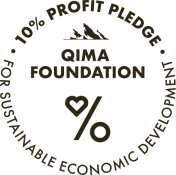10.
Ahmed Subaih
Jury code : 7098
jury score :
88.97
Genetics :
Yemenia
Process :
Natural
lot size :
66.00LBS
traceability
VILLAGE :Bait Alal
REGION : Hayma Kharijiya
GOVERNORATE : Sana'a
ALTITUDE :2300masl
FLAVOUR PROFILE
Blood Orange, Yellow Peach, Dried berries, Hibiscus, Oolong tea, Jolly Rancher
Ahmed Subaih
Ahmed Subaih first appeared in the Best of Yemen auction in 2019 and has been amongst the winning producers regularly ever since. His coffees come from Bait Alal, a community renowned for producing exceptional lots known for their floral, fruit-forward complexity.
At 70 years old, Ahmed is one of Bait Alal’s most experienced farmers. His connection to coffee began more than six decades ago, when as a child he accompanied his father into the terraces to prune, water and harvest. Those early lessons became the foundation of a lifelong vocation that continues today.
Ahmed manages over 500 Yemenia trees planted at 2,300 metres above sea level. His farm relies on rainfall and spring-fed irrigation, with soil fertility maintained through natural composts and organic matter. Each year, he plants new trees to strengthen the farm’s future. Coffee is his family’s main livelihood, and his household of 28 works together during harvest, carrying forward an intergenerational practice where knowledge is passed directly from parent to child.
The path has not been without sacrifice. Fluctuating yields, pests and weather extremes have tested his resilience, yet Ahmed has invested deeply to protect his farm, even selling family gold to build protective stone walls and expand the terraces. Despite these challenges, he describes the sight of trees laden with ripe red cherries as the most rewarding moment of the year.
This naturally processed lot exemplifies both Ahmed’s dedication and Bait Alal’s distinctive profile. It reveals bright layers of blood orange, yellow peach and dried berries, framed by hibiscus and oolong tea-like florals, with a confectionary vibrancy that reflects the region’s reputation for excellence.

